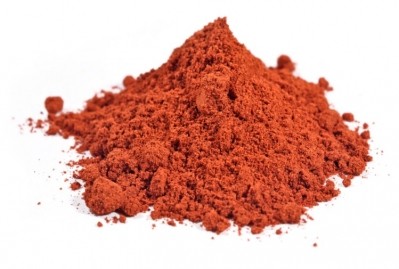Notes from Nutrition 2018 in Boston: 'We’re not worried about scurvy or beriberi, we’re worried about optimal health.'
There’s building evidence on nutrition’s role in preventing cognitive decline, researchers argue

Today marks the last day of the inaugural Nutrition 2018 conference in Boston, organized by the American Society for Nutrition, spun-off from the Experimental Biology series.
A satellite symposium kicking off the conference, funded by the Herbalife Nutrition Institute, brought together researchers from multiple institutions who have extensively studied the role nutrition plays in cognitive health. It was titled "Is Dementia the 'New' Heart Disease?"
One of these scientists was Dr. Elizabeth Johnson from the Jean Mayer USDA Human Nutrition Research Center on Aging at Tufts University.
“A lot of the risk factors for heart disease, which gets a lot of attention, are a lot of the same risk factors for dementia,” she told us. “So we’re looking to bringing attention to dementia and age-related cognitive decline, and really consider how nutrition can have a role in that.”
“With heart disease, we know that you lower your saturated fats, you exercise and maintain a body weight. There are all these behavioral lifestyles that can make a difference to decrease the risk, and now we’re recognizing there are lifestyle changes that we can do to lower the risk of dementia that will include nutrition.”
Lutein ‘preferentially’ taken up to the brain
At the symposium, Dr. Johnson spoke about her research on lutein, a plant pigment part of the carotenoid family, in the brain and coronary vessels.
Her studies have suggested that lutein is “preferentially taken up to the brain,” she explained. “That’s curious, why is it among all these carotenoids that we find in nutrition, of which there are hundreds, you find this one [in the brain].”
Papers she has co-authored on the subject include one published in Nutrients in August last year, linking lutein in avocados to eye health and memory and attention boost.
“The question is, why is it important that we have preferential take-up of lutein into the brain? I have evidence to demonstrate that, and we think it is important because higher levels are related to better cognitive function,” she added.
“So we have a lot of different study designs suggesting that higher lutein status is related to better cognitive function. We see that with older adults with mild cognitive impairment. We’re now seeing it in children earlier in life. My work is demonstrating why that might be, what it may be doing in the brain.”
A look at children and egg yolks
Exploring lutein’s potential health benefits for preventing dementia in old age brought Dr. Johnson to the other end of the life spectrum—childhood.
“When you measure lutein concentrations in pediatric brains—I looked at brain levels in children who have died of accidents—those levels were related to levels of neurotransmitters, they were related to levels of antioxidants, they were related to metabolites needed for lipid metabolism, energy metabolism,” she said.
“All of these are very important for that first year of life when the brain is growing and developing.”
There are clues in the yellowness of an egg yolk as well, which is more suggestion that lutein is needed for early development, she argued.
“Having more lutein here is suggesting that the carotenoid is important to help a young brain grow better, so that’s interesting.”
‘We’re not worried about scurvy or beriberi, we’re worried about optimal health’
Among the other studies presented at the symposium that also looked at nutritional interventions was a study on the effect of curcumin on memory and brain amyloid and tau effects, presented by Dr. Gary Small, director and professor at the UCLA Longevity Center.
The phytonutrient curcumin is in the same boat as lutein, Dr. Johnson opined.
“Forever we’ve been thinking about essential nutrients, our vitamins, our minerals, if we don’t eat them, we get a specific deficiency disease and we could die,” Dr. Johnson said.
“So the issue here now with lutein and curcumin is that these aren’t considered essential, because if you don’t eat lutein or have low intakes of lutein you’re not going to get a specific deficiency disease and you’re not going to die.
“But we’re not at that point right now. We’re not worried about scurvy or beriberi, we’re worried about optimal health. How do we look to our diet that we live longer with health?”















